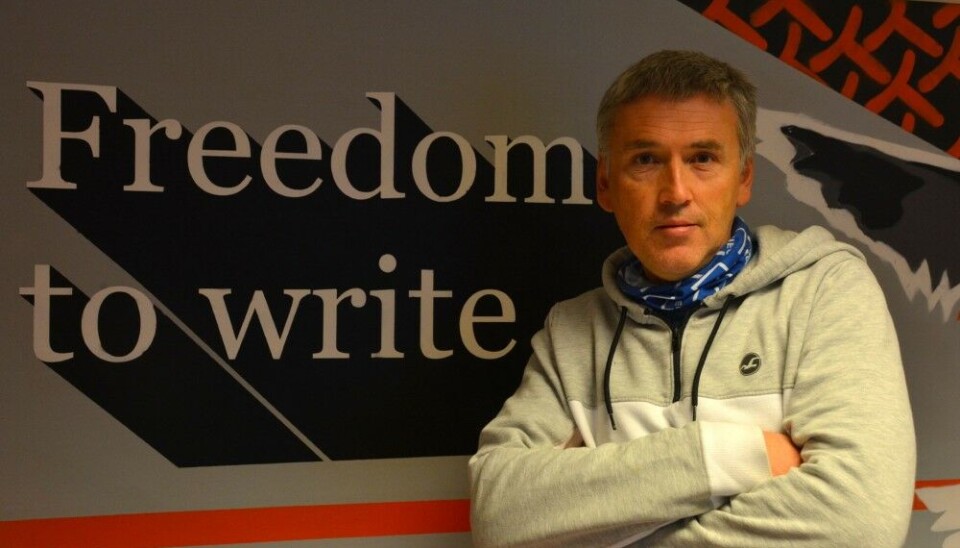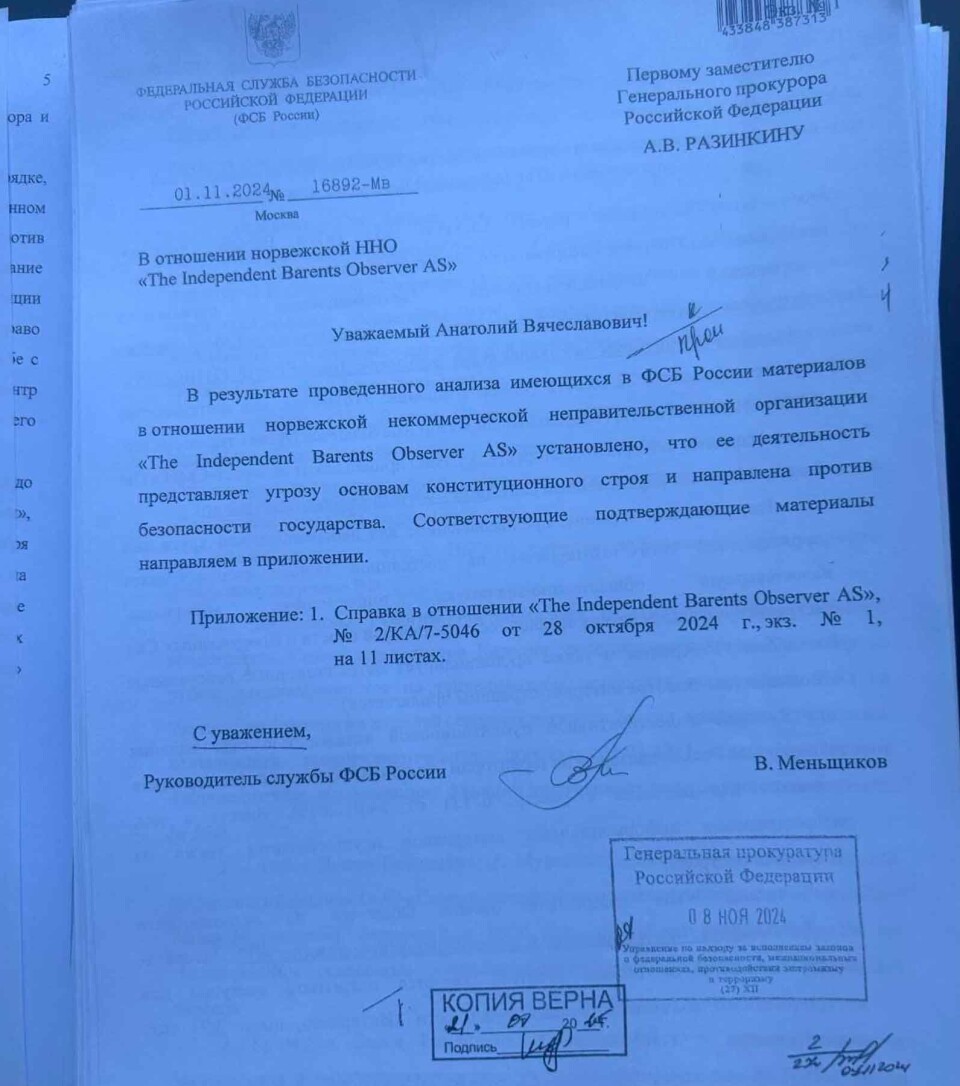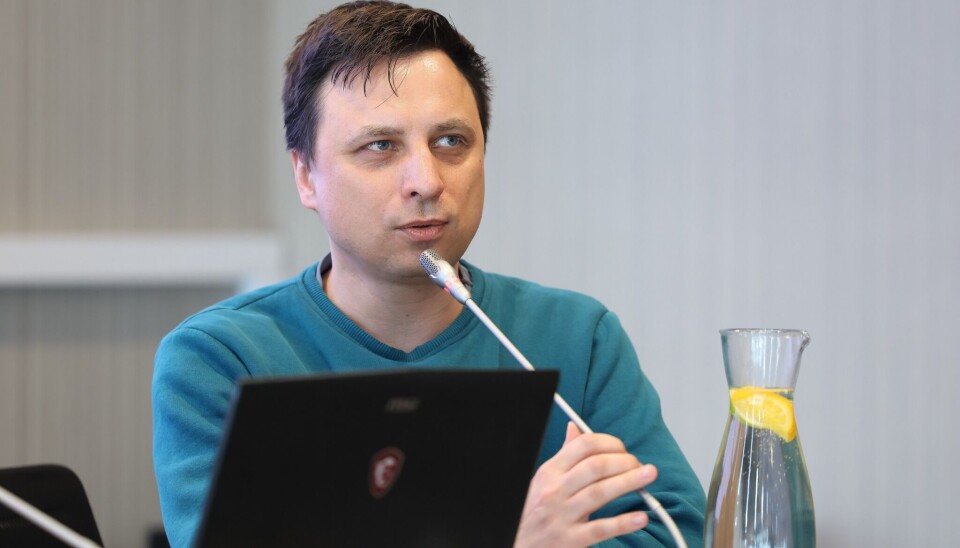
Despite loss in court, Barents Observer sees case against Russian General Prosecutor as victory
The Russian regime has spent major resources on the case against the small newspaper from northern Norway. "I’m amazed by the number of high-ranking officials involved," says Editor Thomas Nilsen. Among them is Lieutenant General Vladislav Menshchikov, chief of FSB’s counterintelligence.
After three court hearings, the judge in the Tverskoy Rayon Court in Moscow on August 1 ruled against the Barents Observer in the case against the Russian General Prosector.
The Norwegian newspaper had challenged the General Prosecutor's decision to include it on the list of so-called ‘undesirable organisations.’
The inclusion of the Barents Observer in the list was announced on February 7 this year. According to the General Prosecutor, the newspaper publishes "anti-Russian materials" and "discredits the Armed Forces of the Russian Federation." It allegedly also "propagates untraditional values" and "aims at stimulating protest actions among the population in north Russian regions."
This week's court decision will not be the last word in the case. The journalists intend to dispute the ruling.
"We will appeal the case to the Moscow City Court," Editor Nilsen emphasizes. He also confirms that the case ultimately could be taken to the Russian Constitutional Court.

He describes the case as unique. Hardly ever before has the Russian General Prosecutor been taken to court in such a case.
During the hearings, the newspaper and its lawyers have gotten access to large volumes of court materials that give unique insights. A folder with 295 pages of court documents has been made available. It shows that as many as four ministries have been involved in the case.
The Ministry of Foreign Affairs, the Ministry of Interior, the Ministry of Justice, as well as the Ministry of Digital Development, have provided materials to the court. In addition come letters from the FSB and its counterintelligence department.
One of the documents is signed by counterintelligence chief Lieutenant General Vladislav Menshchikov. Another by Deputy Foreign Minister Aleksandr Grushko.
"As a result of the FSB's analysis of materials from […] the Barents Observer it can be concluded that its activities pose a threat to the basis of the constitutional order and are aimed against state security," Menshchikov writes in his letter.

According to Editor Nilsen, the case must be seen as a partial victory for the Barents Observer.
"We brought the case to court for two main reasons; first of all to show resistance - fight for justice, secondly to get access to the case files. We had no illusions about having the "undesirable" mark reversed, but the files give unique insights into the juridical process, which is of high value also for others that are "undesirable." It is also valuable for everyone studying the means used by the current repressive despotism to stop journalism from Russian language media located outside Russia," he explains.
He is amazed by the major resources devoted to the case.
"The number of powerful government officials involved shows that this is seen as a significance case for Putin's Russia," he argues.
The court files include deceptive information about all the journalists working at the Barents Observer. They also include information about several of the newspaper's partners and funding sources.
Several parts of the information are outright incorrect. For example, the Barents Observer has never gotten financial support from U.S grant organisations, as claimed in a document from the FSB.
Among the court documents is a letter from the Foreign Ministry's Second European Department — the Scandinavia desk — which might indicate that also the Russian Embassy in Oslo, as well as the General Consulate in Kirkenes, have been involved.
Several of the documents are dated back to years 2024, 2023, and even 2022, which indicates that the plan to include the Barents Observer on the list of 'undesirables' was in the making long before the newspaper actually was added to the list in February 2025.
The letters from the various ministries and state agencies are complemented by copies of a large number of the Barents Observer's published news articles. Many of them are about issues related to the war in Ukraine, Russian opposition groups, and LGBT and "untraditional sexual orientation."
In addition to the 295 pages of court documents made available is an unknown number of undisclosed papers.

In the court case, the Barents Observer is represented by lawyer Maksim Olenichev. He is a member of the First Department, a team of independent Russian lawyers headed by Ivan Pavlov.
The members of the First Department are based in exile. Many of them were previously part of Team 29, the organisation run by Pavlov when he was still based in Russia.
In an interview with the Barents Observer, Pavlov emphasised that freedom of expression is the greatest threat to Vladimir Putin and his regime.
“In today’s Russia, the most dangerous crimes for the regime is not murder, it’s not robbery, it’s not something brutal. It’s about freedom of expression. It’s about words. It’s about speech. And everybody who uses freedom of speech, who uses freedom of expression for purposes that are not in line with the regime, they are criminals according to regime.”



















